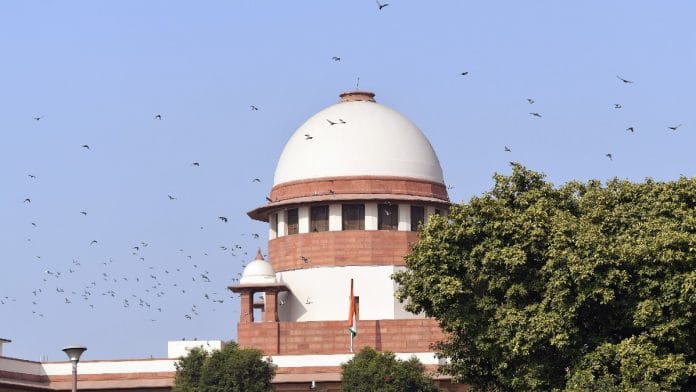New Delhi: The Supreme Court on Tuesday said the armed forces could take action against their officers for adultery, clarifying that its 2018 judgement on the matter was not concerned with the provisions of the Army Act.
In September 2018, the top court had struck down Section 497 of the Indian Penal Code, a 150-year-old law that criminalised adultery. The court called the law “unconstitutional” and “absolutely manifestly arbitrary”.
A five-judge Constitution bench, led by then Chief Justice of India Dipak Misra, had held that adultery could be a ground for divorce but was not a crime and cited examples from other countries such as China and Japan where adultery was not penalised.
The court had ruled: “Legal sovereignty of one sex over another is wrong… Equality is the governing principle of a system. Husband is not the master of the wife.”
On Tuesday, the top court noted that as per Article 33 of the Constitution, legislations governing the Armed Forces can provide exemptions from the applicability of fundamental rights.
The central government had sought a clarification from the apex court on whether Army personnel could proceed under the Army Act for adultery.
The Supreme Court said of the 2018 judgment: “As we notice it is not as if this court approved of adultery. This court had found adultery may be a modern problem… we must observe and clarify that the judgment of this court was not at all concerned with the effects and provisions of the Armed Forces Acts. This court was neither called upon nor has it ventured to pronounce on effect of Sections 45 and 63 of the Army Act as also the corresponding provisions of the other Acts (Navy Act, Air Force Act).”
Also read: Delhi HC transfers plea seeking uniform marriage age for men, women to Supreme Court






